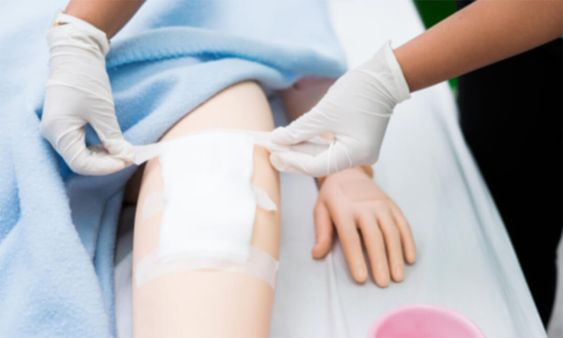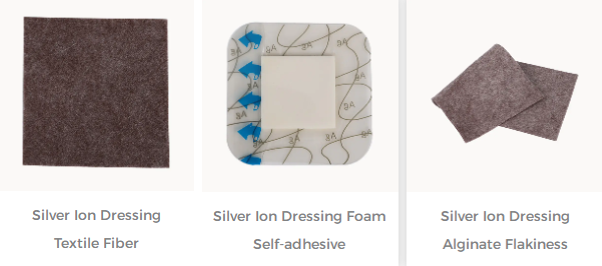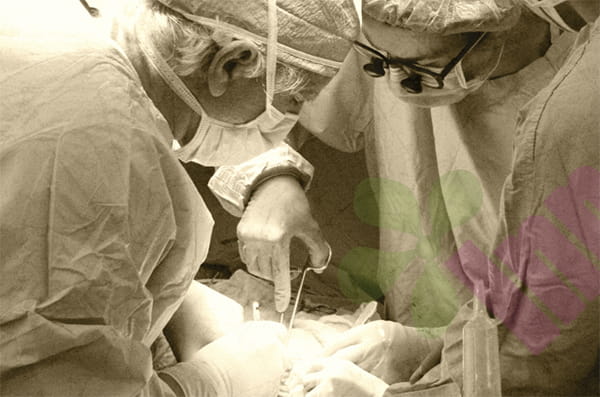SSI refers to a wound infection that occurs after invasive surgery, and the risk of developing it can be as high as 20% depending on the location of the wound and the level of post-operative care the patient receives. In the United States, the incidence of SSI is 20% among all patients undergoing inpatient surgery. It is also one of the major causes of morbidity and mortality, often resulting in prolonged hospitalization. Come and follow me below to see how to avoid cross-infection.
How are postoperative wounds cross-contaminated by microorganisms?
1. Unsterile medical equipment: If the medical equipment used is not adequately sterilized, bacteria or viruses may be introduced into the wound.
2. Coughing or sneezing: If a caregiver coughs or sneezes while handling a wound, it may spread germs from the mouth or nasal cavity to the wound.
3. Human contact: If the caregiver's hands are not adequately cleaned and disinfected, bacteria or viruses on the hands may be transmitted to the wound.
4. Contact with contaminated objects: If the instruments or items used are contaminated, bacteria or viruses may be introduced into the wound.
5. Dirty bedding or clothing: If bedding or clothing is not adequately cleaned and disinfected, it may spread bacteria or viruses to the wound.
6. Prolonged use of catheters, tubes, or intravenous lines: If catheters, tubes, or intravenous lines are not adequately cleaned and disinfected, bacteria or viruses may be introduced into the wound.
Here are steps to prevent cross-contamination:
1. Wash your hands: Before coming into contact with a patient, caregivers should wash their hands with soap and warm water for at least 20 seconds or use an alcohol-based hand sanitizer.
2. Wear gloves: When performing wound care, caregivers should wear sterile gloves to avoid hand bacteria contaminating the wound.
3. Use sterile instruments: When treating wounds, sterile instruments should be used, such as sterile scissors, sterile cotton swabs, and sterile medical gloves.
4. Avoid cross-contamination: When treating wounds, avoid contact with other items, such as mobile phones, keys, watches, etc. At the same time, contact with other patients should also be avoided to reduce the risk of cross-infection.
5. Treat the wound correctly: When treating the wound, you should pay attention to the correct treatment methods, such as cleaning the wound, changing dressings, etc. If any abnormality is found in the wound, it should be reported to the doctor in time.
6. Change dressings regularly: In postoperative wound care, dressing change is very important. Dressings should be changed regularly to prevent them from becoming expired or contaminated.
7. Keep the environment clean: When performing postoperative wound care, the environment should be kept clean. Work areas and instruments used should be disinfected regularly to avoid bacterial growth.
In summary, preventing cross-infection is very important in postoperative wound care. Nursing staff should pay attention to washing hands, wearing gloves, using sterile instruments, avoiding cross-contamination, handling wounds correctly, changing dressings regularly, and keeping the environment clean to ensure the safety and health of patients.
For more information customized on Innomed®Silver Ion Dressing, Refer to the Previous Articles. If you have needs, you are welcome to contact us; You Wholeheartedly. At longterm medical, we transform this data by Innovating and Developing Products that Make Life easier for those who need loving care.
Editor: kiki Jia
Date: September 19, 2023

 English
English عربى
عربى Español
Español русский
русский 中文简体
中文简体








